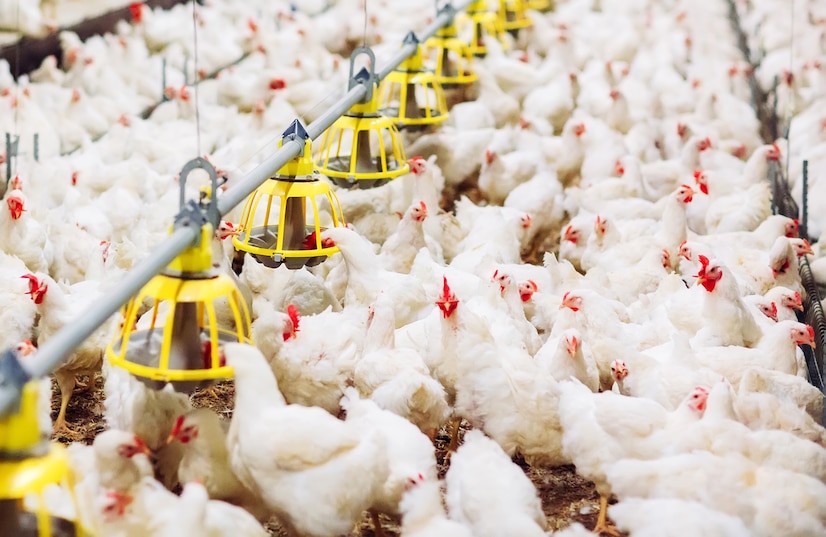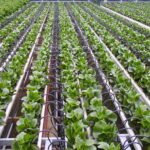The Competition Commission of South Africa has embarked on a critical examination of the poultry industry’s value chain through the “Poultry Market Inquiry” (PMI). This inquiry is poised to delve into the intricacies of broiler chicken and egg production, sectors that are not only pivotal for the nation’s protein intake but also significant contributors to its agricultural landscape. Here are 20 essential insights about this inquiry:
- Vital Sector: The poultry industry, encompassing broiler chicken and egg production, is central to South Africa’s food security, accounting for 65% of the animal protein intake and a substantial economic footprint with a gross value of almost R72 billion in 2022.
- Industry Structure: The industry is characterized by specialization, with producers focusing either on broiler production for meat or on commercial egg production, spanning a comprehensive value chain from feed supply to marketing.
- Protection vs. Affordability: The industry’s call for increased tariffs and anti-dumping duties aims to protect domestic producers but raises concerns about affordability, especially for low-income consumers reliant on chicken as a primary protein source.
- Challenges: Recent hurdles include avian flu outbreaks and load-shedding, impacting egg production and operational efficiency.
- Competition Concerns: The Commission has identified market features that may hinder competition, potentially leading to higher consumer prices and less international competitiveness.
- High Concentration: A 2021 Concentration Study revealed significant concentration levels within each segment of the value chain, dominated by a few large, vertically integrated companies.
- Barriers to Entry: This market structure creates significant barriers for independent and small-scale producers, limiting competition and innovation within the industry.
- Poultry Sector Master Plan: Introduced in November 2019, this plan aims to develop and transform the sector but does not directly address the competition issues that the PMI seeks to tackle.
- Inquiry Objectives: The PMI aims to evaluate market distortions, the impact of large producers on SMEs and historically disadvantaged persons (HDPs), and the commercial dynamics affecting small-scale producers.
- Scope of Inquiry: The inquiry will scrutinize the entire value chain, from key inputs like feed and genetic stock to the roles of retailers and food companies in market access.
- Key Inputs: A focus will be on understanding how control over essential inputs by large producers affects smaller entities and the overall market dynamics.
- Bargaining Power: The inquiry will assess the balance of power between contract growers and large integrators, exploring how this dynamic influences market entry and sustainability for smaller producers.
- Market Access: Evaluating the role of retailers and food service companies in facilitating or hindering market access for independent and small-scale producers is a priority.
- Remedies: Identifying and implementing remedies for any adverse competition effects is a central goal, ensuring a more competitive and fair market landscape.
- Consumer Impact: Ultimately, the inquiry aims to benefit consumers through improved competition, potentially leading to lower prices and greater availability of poultry products.
- Regulatory Framework: Conducted under the Competition Act 89 of 1998, the PMI is a tool for addressing market features that restrict competition.
- Economic Significance: By addressing these issues, the inquiry supports the broader economic goal of enhancing the poultry industry’s contribution to South Africa’s GDP and employment.
- Historical Context: This inquiry follows a trend of market inquiries in South Africa, reflecting the Commission’s proactive stance on identifying and remedying competition issues across sectors.
- Stakeholder Engagement: The inquiry process involves engaging with a wide range of stakeholders, from industry players to consumer groups, ensuring a comprehensive understanding of the market dynamics.
- Future Outlook: The outcomes of the PMI could set a precedent for addressing competition concerns in other sectors, highlighting the importance of a competitive, efficient, and inclusive industry for South Africa’s economy.
The Poultry Market Inquiry represents a crucial step towards ensuring a competitive and fair poultry industry in South Africa, with the potential to positively impact consumers, small producers, and the broader economy.








